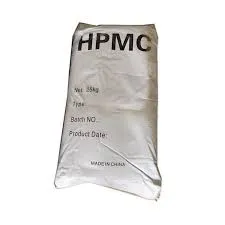
Dec . 11, 2024 14:18 Back to list
Exploring the Benefits and Applications of HPMC Thickening Agents in Various Industries
Understanding HPMC Thickener A Comprehensive Overview
Hydroxypropyl Methylcellulose (HPMC) is a versatile and widely used thickener in various industries, including pharmaceuticals, food production, and cosmetics. As a cellulose ether, HPMC is a modified form of cellulose, which is derived from natural plant materials. The modification process enhances its solubility and thickening ability, making it a valuable ingredient in numerous applications.
Properties of HPMC
HPMC is known for its unique properties that contribute to its functionality as a thickener
1. Water Solubility One of the key attributes of HPMC is its ability to dissolve in water. This feature allows it to form a gel-like consistency when mixed with liquids, enhancing the viscosity of the product.
2. Thermal Stability HPMC exhibits good thermal stability, which makes it suitable for heat-sensitive applications. It retains its thickening properties even when subjected to high temperatures, making it ideal for cooking and baking processes.
3. pH Stability HPMC is stable across a wide range of pH levels, ensuring its effectiveness in various formulations, whether they are acidic or alkaline.
4. Biodegradable As a natural derivative, HPMC is biodegradable, making it an environmentally friendly option compared to synthetic thickeners. This characteristic aligns with the growing demand for sustainable and eco-friendly ingredients in product formulations.
Applications of HPMC Thickener
hpmc thickener

HPMC is employed across multiple sectors due to its versatility. Here are some notable applications
1. Food Industry HPMC is commonly used as a thickening agent in food products, particularly in sauces, dressings, and dairy products. Its ability to enhance texture and stabilize emulsions makes it a preferred choice for manufacturers. Additionally, HPMC can be found in gluten-free products, helping to improve the mouthfeel and structure that is often lacking in such formulations.
2. Pharmaceuticals In the pharmaceutical sector, HPMC serves as a binder in tablet formulations and as a thickening agent in various liquid formulations. Its controlled release properties make it beneficial in the development of sustained-release drug delivery systems.
3. Cosmetics and Personal Care HPMC is widely used in the cosmetic industry to improve the viscosity and texture of creams, lotions, and gels. It helps to stabilize emulsions and enhances the spreadability of products, providing a pleasant sensory experience for users.
4. Construction In the construction industry, HPMC is added to cement and mortar mixes to improve workability and water retention. This property is critical for achieving strong adhesion and durability in construction materials.
Conclusion
HPMC thickener is a remarkable ingredient that has found its place in various industries due to its exceptional properties and versatile applications. Its ability to enhance viscosity while remaining environmentally friendly positions it as a preferred choice for manufacturers aiming to create high-quality products. As the demand for clean-label and sustainable ingredients continues to rise, HPMC thickener is likely to become even more prominent in formulation science.
In conclusion, understanding HPMC's capabilities allows industries to innovate and improve product formulations, catering to consumer preferences for quality and sustainability. Whether in food, pharmaceuticals, cosmetics, or construction, HPMC is undoubtedly a key player in enhancing product performance and user experience. As research continues and technology advances, the potential uses of HPMC may expand even further, reinforcing its importance in diverse applications.
-
Unlocking the Benefits of HPMC Products: A Gateway to Versatile Applications
NewsAug.07,2025
-
Unleashing the Potential of HPMC Ashland: A Comprehensive Look
NewsAug.07,2025
-
Tile Bonding Cellulose: The Key to Superior Adhesion and Durability
NewsAug.07,2025
-
Hydroxypropyl Methylcellulose Powder: The Versatile Component in Modern Pharmaceuticals
NewsAug.07,2025
-
Hydroxyethyl Cellulose: The Versatile Solution for Various Industries
NewsAug.07,2025
-
Hydroxyethyl Cellulose (HEC): The Versatile Polymer for Various Applications
NewsAug.07,2025







